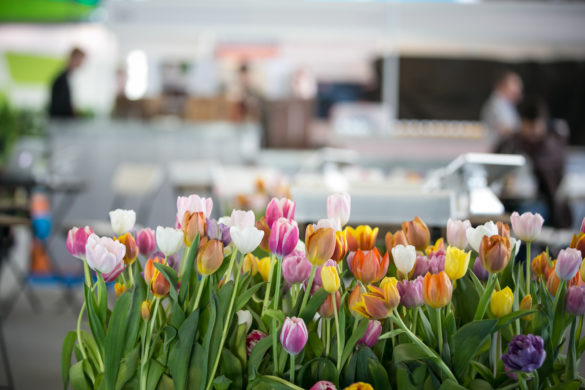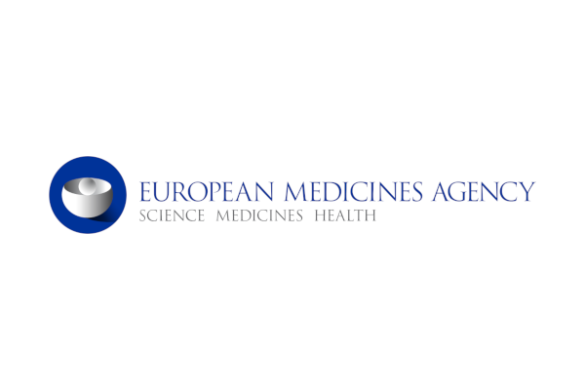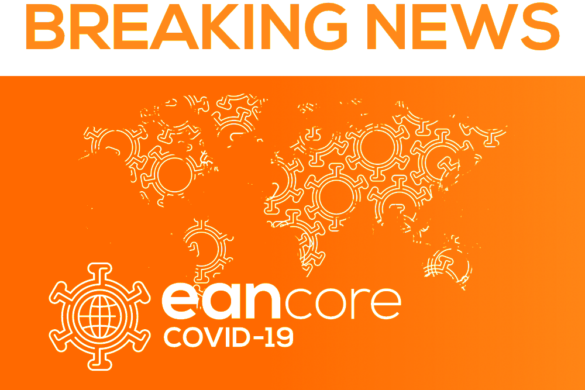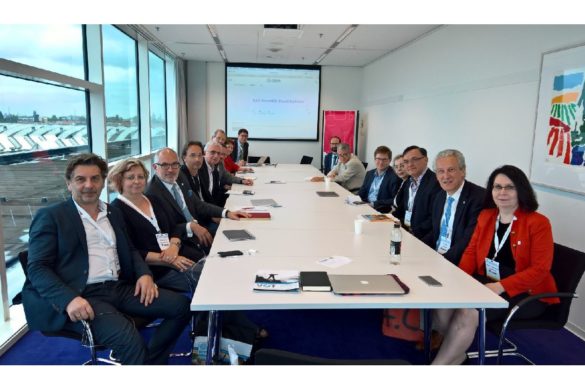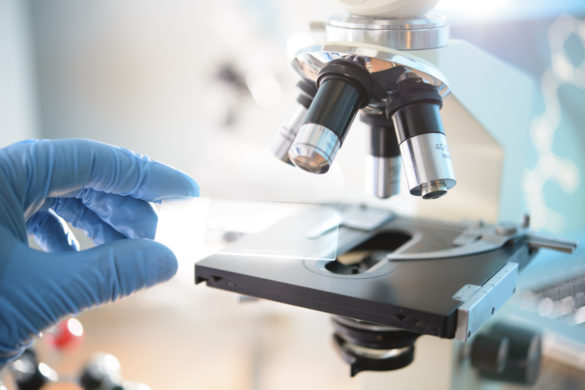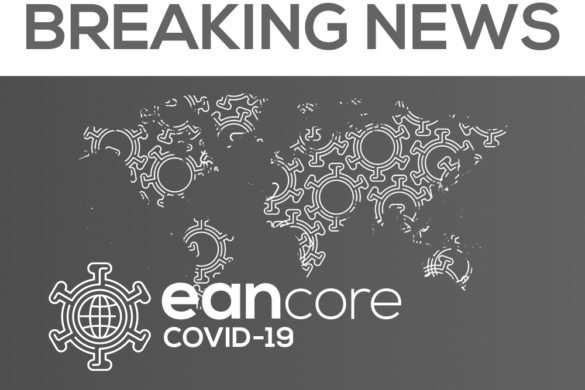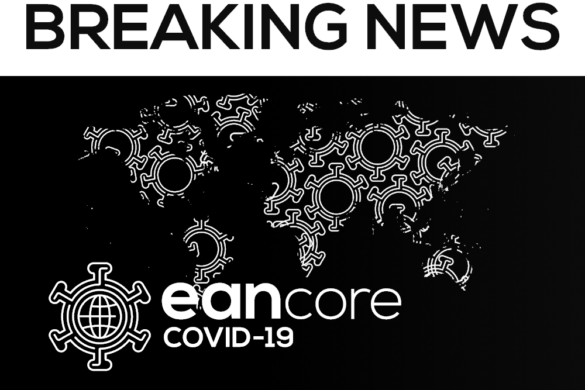The EAN Scientific Panel held its annual meeting on 25 June 2017 09:45 to 10:45 during the 3rd EAN Congress in Amsterdam. Chair of the meeting: Lueder Deecke, Management Group members present: Co-Chair Stefano Cappa, Pasquale Calabrese, Wolfgang Heide, Lacramioara Perju-Dumbrava. The chair welcomed the members present.
The agenda covered in the meeting included the following points:
Activities of our Panel from 2016 culminating in the sessions of the 3rd EAN Congress in Amsterdam
(1) Focused Workshop (FW 10) just before our business meeting 25 June 2017 from 08:00 to 09:30 in Emerald.
Title: “Neurobiological and clinical aspects of memory consolidation”. Chairperson: Jan Born, Stefano Cappa.
Speakers: Jan Born: Tuebingen DE How does memory consolidate during sleep – behavioural, EEG, and neuropharmacological evidence. Pierre Maquet, Liège BE: Brain mechanisms of memory consolidation during sleep – evidence from functional brain imaging.Thorsten Bartsch, Kiel DE: The hippocampus in aging and disease. Stefano F. Cappa, Milan IT: Chairman’s concluding remarks.
(2) Teaching Course (TC16) on 27 June 2017, 13:00-16:30 in G102/103. Title: “Higher cortical function in neurology – an Update – Level 2. Chair: Stefano Cappa & Lueder Deecke
Presentations: Masud Husain, Oxford UK: Executive function and behaviour, Hans-Otto Karnath, Tuebingen: Spatial functions. Frédéric Assal, Geneva: Memory, and Stefano Cappa, Milano: Language and overview of assessment tools.
Activities of our Panel for 2018 4th EAN Congress in Lisbon
Our proposal for the 4th EAN Congress Lisbon 16-19 June, 2018 has been accepted by the Scientific Committee
Focused workshop: Title: ‘Lost in space – clinical and neurobiological aspects of topographagnosia’ It will take place on Sunday 17 June 2018 from 08:00 – 09:30. Chairperson: Wolfgang Heide Celle DE,
Presentations: Masud Husain Oxford UK: The map cannot be explored? – disorders of spatial exploration in neglect (perceptive topographagnosia),Wolfgang Heide: The map is distorted – disorders of the perceptual analysis of space (apperceptive topographagnosia). Jan Laczo, Prague, CZ: The map is lost – disorders of spatial memory (associative topographagnosia and topographical amnesia).
Activities of our Panel regarding Teaching Projects
- Discussion on ‘Cognitive Neurology resources for EAN community’. Masud Husain was the leader of this discussion. By this we were continuing a vivid e-mail discussion in our Panel on the resources for cognitive neurology. The discussion in our Panel Business Meeting in Amsterdam was vivid as well. Masud Husain drew the following conclusion:
“Following the business meeting in Amsterdam, I shall summarize the views and action points that emerged:
1) It would be good to move forward with plans to improve Cognitive Neurology teaching for the EAN.
2) This might be via a 2-day Autumn School, perhaps held in Oxford.
Action point: Miguel Pereira will propose this at the Education Committee on Mo 26 June 2017) .
Miguel Pereira did so and reported: “Regarding the meeting with the Educational panel, they said they could not sponsor a meeting for only one Scientific Panel, as there are many similar requests. However, there is the option to propose a regional teaching course or a program to a spring/autumn school together with other panels. Miguel suggested to include the Dementia panel and probably other panels such as epilepsy, movement disorders, stroke, or neuromuscular disorders. So a proposal could be made supported by more than one panel. Possible solutions in line with Masud’s suggestion:
1) Draft of a proposal to an Autumn School 2019 (2018 is already being organized). 2018 will be the first year this feature will occur. Miguel means that If we come up with a proposal, we would have good chances to get the sponsorship of the EAN. The first issue could be: ‘From symptom to the differential diagnosis,.’ which Miguel thinks would fit to Masud’s plans Miguel is thinking of 3 days. Language and memory (day 1), visuospatial (day 2) and executive functions (day 3). From this we could then start to evaluate »some of the underlying pathophysiology and differential diagnosis», and Miguel thinks that we could easily integrate at least the Scientific Panels ‘Dementia,’ ‘Frontotemporal Dementia’ and ‘ALS’ (this is a Scientific Panel, led by Albert Christian Ludolph, Ulm). Lueder Deecke said to Miguel: “Ludolph and others now hold the view that ALS (Amytrophic Lateral Sclerosis) and FTD (Fronto-Temporal Dementia) are genetically coupled!” Miguel also mentioned ‘Neuroimaging’ and/or ‘Neuroinfections’ panels. He says that unlike other disciplines, there is no Summer/Winter School for young neurologists (as far as Miguel knows), but this would actually be needed. And there are already suggestions: By Masud for Oxford in 2019, and by Irena Rektorova in Oslo 2019. Irena wrote: “I raised the question about the autumn/spring schools also on the Panel Chairmen meeting – President Deuschl said that we should make a proposal and such a school might be funded/partially funded! – we should proceed with this and work out a draft of the proposal. Miguel has reported already above, that several SPs should join, but Irena’s answer she got from President Deuschl is more positive, Lueder thinks, and has the advantage of doing it out of our own scientific panel, which would be better.
Irena also contacted already a local Scientist in Norway. This is Prof. Tormod Fladby, from the Institute of Clinical Medicine and Loboratory Science in Lørenskog, Norway. The facilitation by a person like him in connection with the next but one ENA-Congress, the 5th ENA Congress in Oslo 2019, would generally be a good thing.
Masud continued in his Summary: 3) We can also consider proposing Cognitive Neurology courses – case sessions, interactive or hands-on sessions – for future EAN meetings, including the Oslo meeting in 2019.
Action Point: Armin Schnider, Irena Rektorova, Masud Husain, Pasquale Calabrese, Stefano Cappa and Wolfgang Heide to act as a small group to look into this. I don’t see the mechanism for initiating this but perhaps Lueder might help us with this. I, Lueder, think the best strategy is to address President Deuschl as soon as the plans are worked out and an application can be written, and Stefano made an exposé on this below.
Action point: Irena to contact her colleague in Oslo to enquire whether they would be interested in being involved in a hands-on course which would require patients who speak English. But I think, translation would be possible if they speak only Norwegian
A questionnaire of the teaching of cognitive neurology/neuropsychology in neurology residency programs in Europe
Stefano made an exposé on that, he e-mailed the following in an attachment:
“This is a survey of the teaching of CN / neuropsychology in neurology residency programs in Europe:
- Is cognitive neurology/neuropsychology training provided during residency training in your country?
Yes / No
- If yes, what is the format? Lectures, Case discussion, Practical activities (cognitive assessment, neuropsychological testing)., etc.
- What is the approximate amount of time/credits dedicated to cognitive neurology/neuropsychology
- Who is involved in the teaching activities? Neurologists, Psychologists, Speech therapists, Other (specify)
- What are the main topics? Neuropsychological assessment, Dementia, Aphasia. Cognitive rehabilitation, Other (specify)
- Is any teaching material used? Textbook, Video, Computerized testing system.” I think this is a first attempt to establish a questionnaire.” Stefano Cappa.
Activities of our Panel regarding Guideline Production
According to the EAN Scientific Committee, an important topic are guidelines. Our panel also thinks this is important. Stefano rose this issue reporting that he has an already commenced project of guidelines with bearing to Cognitive Neurology (Cognitive rehabilitation). But he will not have the time to finish it. He would give the whole material to someone who would be willing to further work on it and complete it. Stefano e-mailed the following suggestion:
1.) Gereon and Stefano to organize a mini-panel to explore the needs for Cognitive Neurology guidelines
2.) Irena and Stefano to propose a concise questionnaire to perform a survey of Cognitive Neurology resident training in Europe. Then Lueder reported: “Good news from the Scientific Panels’ & Task Force Chairpersons’ Meeting, which just ended: President Deuschl made a statement that there is a Fonds now established to apply for money for guideline production. Wolfgang, Stefano, Irena, Gereon, and others e-mailed back, reporting their satisfaction about President Deuschl’s Money Funds for Guidelines. Lueder is personally very happy that Gereon Fink is willing to start with a Guidelines project. Gereon volunteered to start an e-mail discussion about how to proceed with this project, He suggested, we should have a start with a guideline in the field of aphasia and also neglect Guidelines should cover both diagnostics and therapy. Let us start collecting names of people who might be able and willing to contribute to this important endeavor.
Re: Aphasia: Gereon thinks that Jennifer Crinion and Walter Huber would be strong candidates to be involved in such a guideline. In addition, of course, Stefano should be involved. Any more suggestions?
Re: Neglect: Gereon thinks that Masud Husain and Otto Karnath would be strong candidates to be involved in this guideline project. Gereon himself ‘may be tempted to take part in this endeavor too.’ From Italy, Gabriella Bottini or Anna Berti might be interested. – Any suggestions for candidates from other countries? Once we have been able to identify a core team which is happy to pursue this we may proceed with the EAN office.” Lueder suggested to ask Thedi Landis, and Cornelius Weiller. Armin Schnider e-mailed: “Please add Thomas Nyffeler (thomas.nyffeler@luks.ch) to the list of Neglect guideline panel members! He is the expert on TMS (Transcranial Magnetic Stimulation) for neglect therapy.“ Stefano Cappa e-mailed to Gereon: “You can count me in. There is a systematic review promoted by Anna Basso dating about 6-7 years ago, which was published only in a book in italian. Of course needs to be redone, but may provide some useful hints.” Irena expressed the wish to participate in the Aphasia Guideline committee, and Gereon replied to her: “I will add you to the list. Subsequently Gereon gave further information from the EAN webpage, a sort of ‘guidelines for guideline production’ (see minutes).
In conclusion: discussion about guidelines is in good standing, and what is only left to be said is:
Activities of our Panel regarding the Rare Neurological Diseases Task Force
This is represented by Wolfgang Heide, member of the panel and Managing Group, and the rare disease he suggests is the Balint-Syndrome. This is a rare disease particularly related to the special issues our panel is dealing with: the higher cortical functions that are lost in this disease. It is still incompletely understood, and Wolfgang Heide is working on an official suggestion to the Rare Neurological Diseases Task Force as requested by the EAN board.
Co-Chair: Prof. Dr. Dr. h.c. Lueder Deecke Dep. Clinical Neurology Medical University of Vienna Austria
Co-Chair: Prof. Dr. Stefano Cappa, IUSS, Istituto Universitario di Studi Superiori di Pavia, Italy




